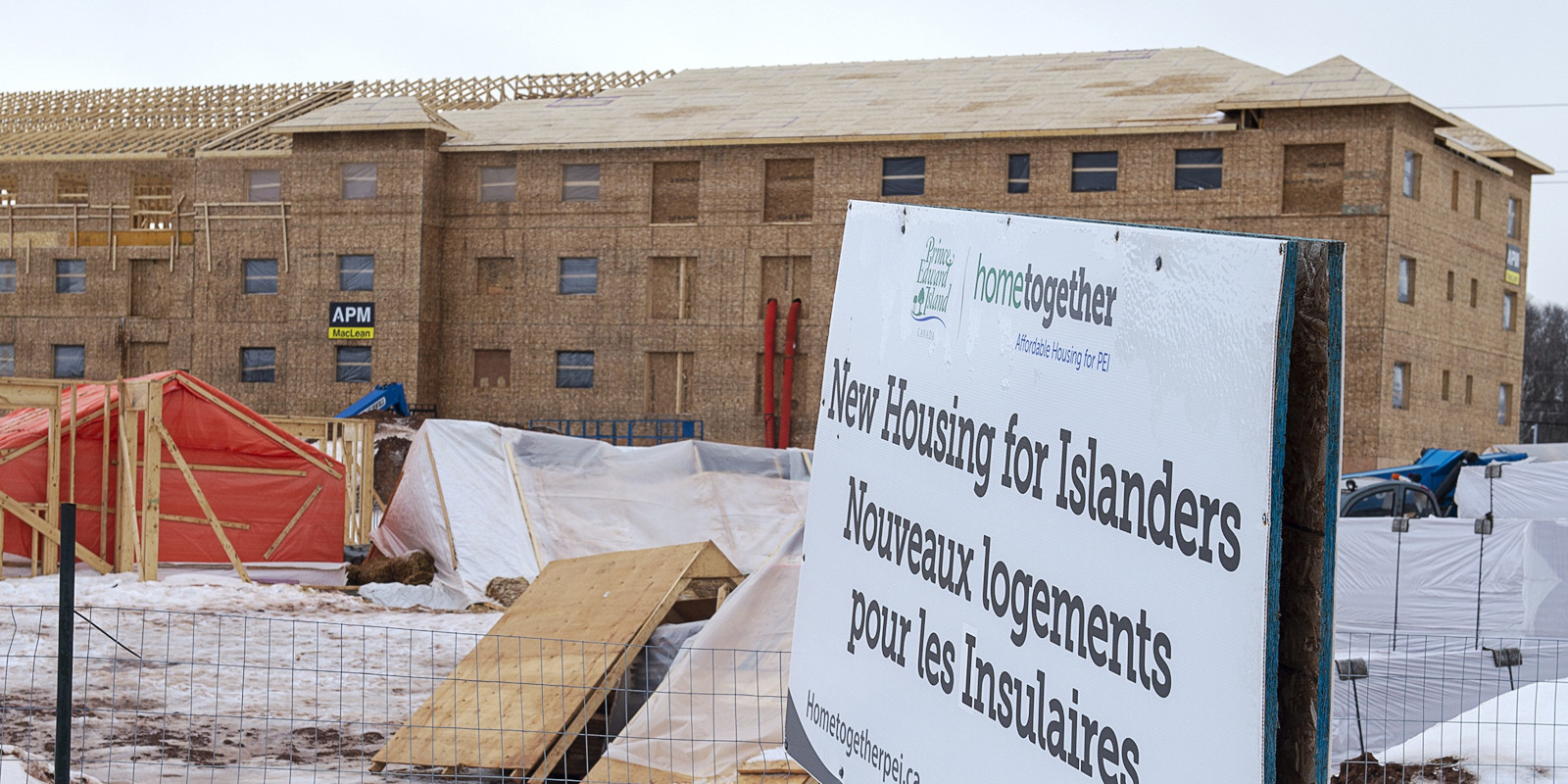It’s rare to see news coverage of Canadian politics in U.S. outlets, but it’s even more extraordinary to see leadership race policy proposals appearing south of the border.
A recent Washington Post column highlighting the housing plans of several Conservatives might be a sign of how important housing has become as an issue for young voters, or it might be a sign that the debate in Canada is genuinely fascinating for policy wonks.
This week, Ontario MP Scott Aitchison overtly campaigned on YIMBYism (yes-in-my-backyard) and Pierre Poilievre took a big swing at big-city NIMBYs (not-in-my-backyard).
In our weekly round-up of the Conservative leadership race, we look at housing policies, Canada’s controversial dairy supply management system, and Jean Charest’s latest policy proposal on health care.
A crackdown on gatekeepers
Pierre Poilievre plans to punish big cities “for egregious cases of NIMBYism and gatekeeping” with a new policy proposal that aims to address the housing shortage.
Poilievre’s plan would require “severely unaffordable” big cities to increase housing development by 15 percent or risk losing some federal funding. The plan will also pay municipalities $10,000 for each extra home built and would also encourage high-density development on land near transit projects.The plan also promises to sell off 15 percent of the government’s buildings and stop the federal government from “creating cash to fund government deficits.”
Ontario MP Scott Aitchison also encouraged a “yes in my backyard” spirit on the campaign trail this week, arguing it was the best way to fix the country’s housing crisis.
The issue has even gotten some play in U.S. media.
Centre-left columnist Matthew Yglesias, who runs the Substack newsletter Slow Boring, wrote that it’s surprising to see right-of-centre politicians in Canada offering solutions to fix the housing shortage. In America, Donald Trump and his allies have attacked similar plans as an attempt to “abolish the suburbs.”
“In Canada, as in the U.S., the federal government finances a fair amount of local government activity. So it makes sense to tie funding to new housing permits. If towns and cities want money for infrastructure, they need to do their share to add to the national housing supply,” wrote Yglesias.
“In the U.S., this is considered a daring left-wing idea,” he wrote. “On the economics, (American conservatives) could learn a lot from their conservative friends north of the border.”
Conservatives wade into supply management again
Aitchison also made some waves this week with a plan to wind down Canada’s dairy supply management program.
Aitchison argued that the artificial limits on supply raise prices for Canadian consumers of dairy, poultry, and eggs, which is particularly troublesome at a time when inflation is reaching its highest level in decades. The plan would also compensate farmers who would lose out when the program is abolished.
Poilievre has recently argued that this kind of compensation would make abolishing the program more expensive than keeping it.
Maxime Bernier ran on a similar proposal during the 2017 Conservative leadership race and was ultimately defeated in part by dairy farmers turning out to support rival candidate Andrew Scheer.“Many dairy and poultry farmers across Canada breathed a sigh of relief… as Andrew Scheer defeated front-runner Maxime Bernier to become the leader of the Official Opposition and the Conservative Party of Canada.” https://www.realagriculture.com/2017/05/dairy-farmers-made-difference-in-scheers-surprise-win-over-bernier/
Charest tests the water on private health-care delivery
Jean Charest rolled out a new policy proposal this week that would allow the provinces more flexibility on how to deliver health care and which could open the door to more private surgeries being paid for with public dollars.
Charest said the COVID-19 pandemic has shown how desperately low Canada’s health-care capacity is and that this option would prevent any further lockdowns.
“In every category, from ICU and hospital beds per capita, to doctors and nurses per capita, to wait times for basic procedures, Canada is near the bottom of the OECD rankings despite spending more than most countries that outperform us,” Charest told the Toronto Sun.
As the former premier of Quebec, Charest oversaw a system that allowed more private delivery than the rest of Canada due to a 2005 Supreme Court case.https://scc-csc.lexum.com/scc-csc/scc-csc/en/item/2237/index.do
The issue has long been controversial in Canadian politics and caused one infamous episode in the 2021 federal election when a videoAfter the edited video was posted, O’Toole sought to make clear his support for universal health care, blasting the Liberals for “American-style misleading politics.” https://www.ctvnews.ca/politics/federal-election-2021/what-does-erin-o-toole-actually-want-in-terms-of-private-health-care-1.5561134 posted by Liberal candidate Chrystia Freeland accusing then-Conservative leader Erin O’Toole of supporting private health care was flagged by Twitter as “manipulated media.”
Recommended for You

‘Our role is to ask uncomfortable questions’: The Full Press on why transgender issues are the third rail of Canadian journalism

Need to Know: Mark Carney’s digital services tax disaster

Theo Argitis: Carney is dismantling Trudeau’s tax legacy. How will he pay for his plan?

Kirk LaPointe: B.C.’s ferry fiasco is a perfectly Canadian controversy



